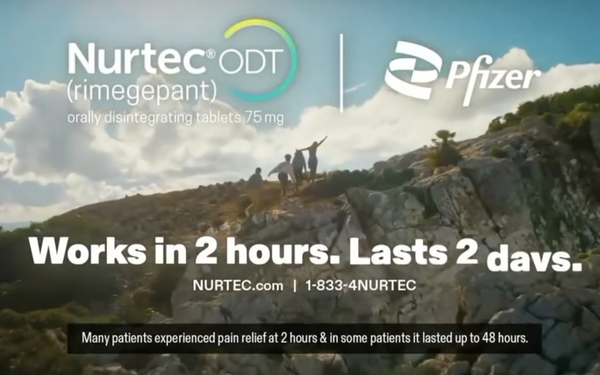
While several of the statements coming
out of the Trump Administration “are not in correlation with what science has proven over the decades,” Pfizer CEO Albert Bourla told analysts during a Q1 earnings call Tuesday morning
that “those views are not expressed by the entire Administration.”
Case in point? President Trump. “I told him he should have received the Nobel Prize” for
spearheading Operation Warp Speed and it was “unfair” that he didn't, Bourla related. By spearheading that initiative to develop a COVID vaccine, Bourla said, Trump created a
“miracle” that enabled “the entire world to save their economies and survive.”
Five years since Operation Warp Speed and amid anti-vaccine rhetoric from, yes, the Trump
Administration, the subject of vaccines hardly came up in either Pfizer’s Q1 earnings announcement or on the analyst call. For the record, though, revenues from Pfizer’s COVID vaccine rose
62% year-over-year.
advertisement
advertisement
Pfizer’s anti-COVID drug, Paxlovid, on the other hand, was fingered as the main culprit in causing the firm’s total revenues to drop 6% YoY -- to $13.7 billion.
Paxlovid revenues in the quarter dropped 75%, partly due to a lower number of COVID infections caused by a lower-than-usual winter COVID wave. Nonetheless, some 750,000 Americans received Paxlovid
during the quarter, Aamir Malik, chief U.S. commercial officer, told the analysts.
Pfizer also reaffirmed its previously announced 2025 revenue guidance at $61 billion to $64 billion, despite
$150 million in costs due to already implemented tariffs.
Bourla, while not downplaying potential greater threats from tariffs on now-exempt pharmaceuticals, insisted that the Trump
administration’s primary concern with the industry is over national security threats from medicines produced by non-friendly countries, which he’s gleaned “through my discussions
with the highest levels of the government.”
Noting that no other country had ever done anything like Operation Warp Speed, Bourla cautioned that, “from a national security point of
view, imagine if in the next pandemic, the medicines that will help will not be invented in this country. That would be a problem.”
In prepared remarks to kick off the earnings call,
Bourla singled out the performance of migraine drug Nurtec, saying that revenues grew 40% year-over-over-year, and noting “outperformance of our newly launched consumer campaigns.” He also said that Pfizer has accelerated a “pivotal study of Nurtecfor menstrually related
migraine, which is estimated to impact more than half of women who experience migraine.”
Also in Q1, Pfizer took in some $6.3 billion from selling its remaining shares in Haleon, the OTC
company formed out of the former consumer health businesses of both Pfizer and GSK.